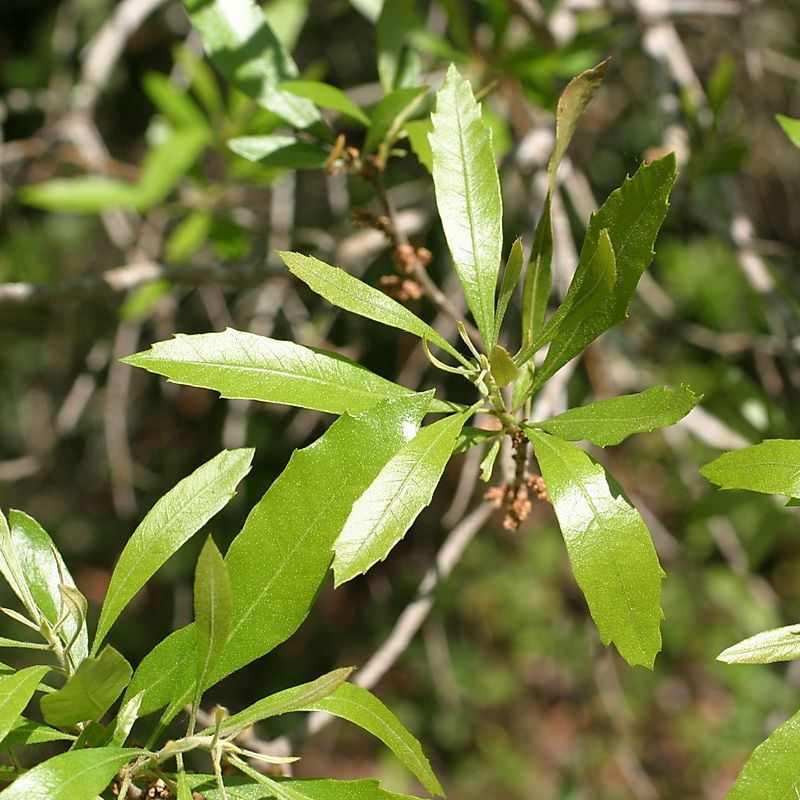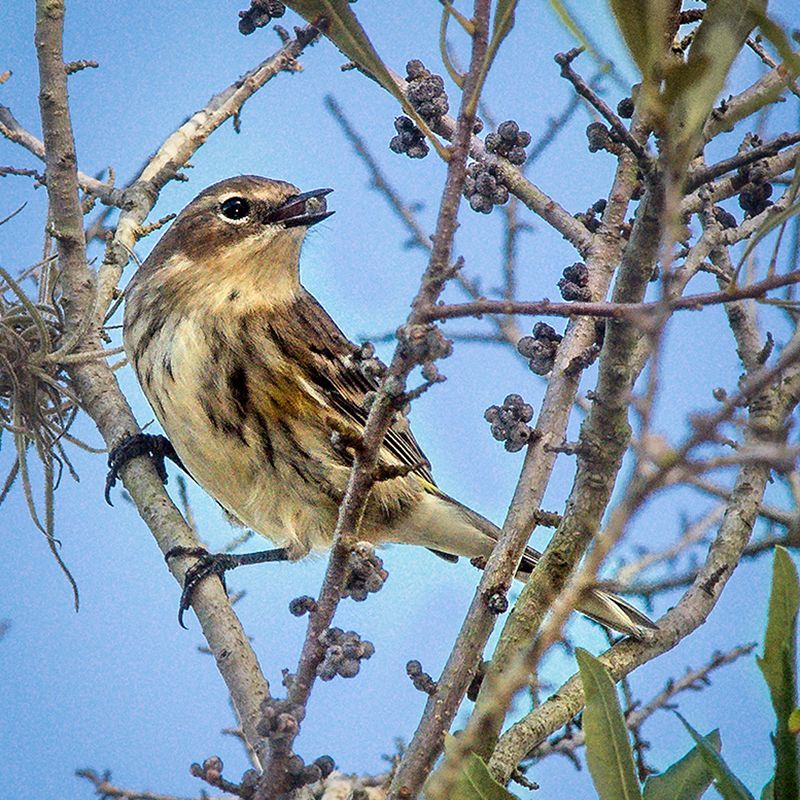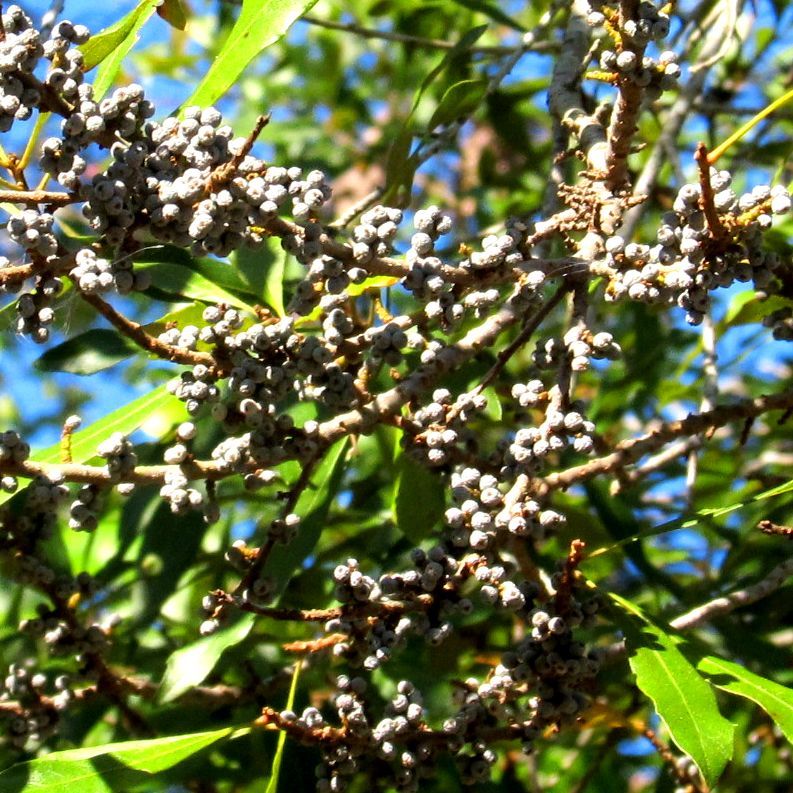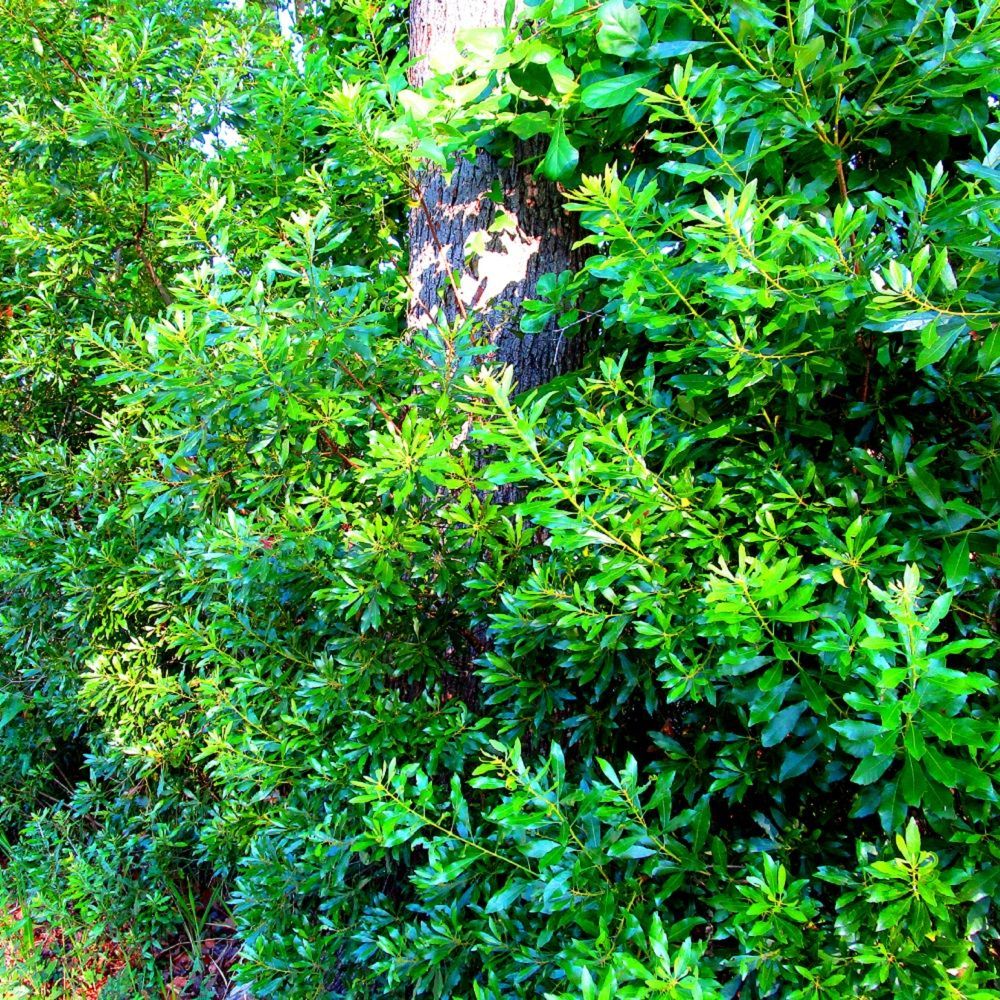FNPS Plant Database
Morella cerifera
Nomenclature
Common Name:
Synonym(s):
Genus species:
Family:
Myricaceae
Plant Specifics
Form:
Size:
Life Span:
Long-lived perennial
Flower Color:
Fruit Color:
Phenology:
Noted For:
Landscaping
Recommended Uses:
Considerations:
Availability:
Propagation:
Light:
Moisture Tolerance:
Always Flooded---------------------------------Extremely Dry
□□□□□□□□□■■■■■■■■■■■■■■■■■■■■■■■■■■■□□□□□□
Stays wet -to- Somewhat long very dry periods
Salt Water Flooding Tolerance:
Unknown
Salt Spray/Salty Soil Tolerance:
Moderate. Tolerant of salty wind and may get some salt spray
Soil or Other Substrate:
Sand, Loam, Lime Rock
Soil pH:
Suitable to Grow In:
8A,8B,9A,9B,10A,10B,11

USDA zones are based on the average annual extreme minimum winter temperature.
Don't know your zone? Click here to search by zip code.
Vouchered In:
Ecology
Wildlife:
Larval host for banded hairstreak (Satyrium calanus) and red-banded hairstreak (Calycopis cecrops)butterflies.
Good wildlife cover. Seeds eaten by birds.
Native Habitats:
Comments:
Ethnobotany:
General Comments:
Citations:
Haehle, Robert G. and Joan Brookwell. (1999). Native Florida Plants. Gulf Publishing Company. Houston, TX.
Huegel, Craig N. (2010). Native Plant Landscaping for Florida Wildlife. University Press of Florida, Gainesville, FL.
Nelson, Gil. (2003). Florida's Best Landscape Plants: 200 Readily Available Species for Homeowners and Professionals. University Press of Florida, Gainesville, FL.
Osorio, Rufino. (2001). A Gardener's Guide to Florida's Native Plants. University Press of Florida, Gainesville, FL.
Watkins, John, and Thomas Sheehan. (1975). Florida Landscape Plants, Native and Exotic. University Presses of Florida, Gainesville, FL.
Wunderlin, R. P, B. F. Hansen, A. R. Franck, and F. B. Essig. (1999+). Atlas of Florida Plants. ( https://florida.plantatlas.usf.edu/ ). [S. M. Landry and K. N. Campbell (application development), USF Water Institute.] Institute for Systematic Botany, University of South Florida, Tampa, FL.













